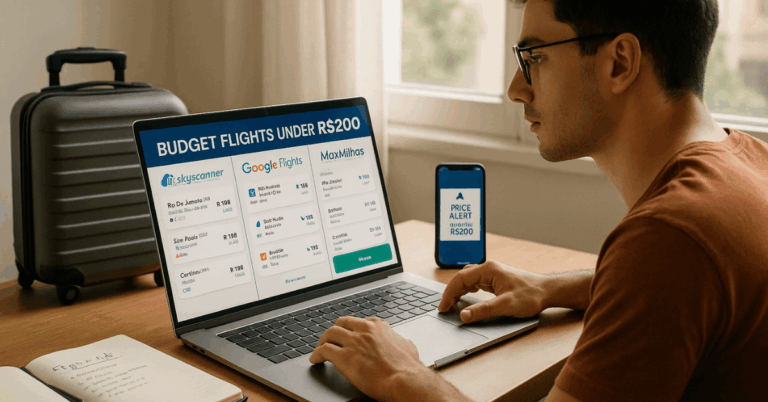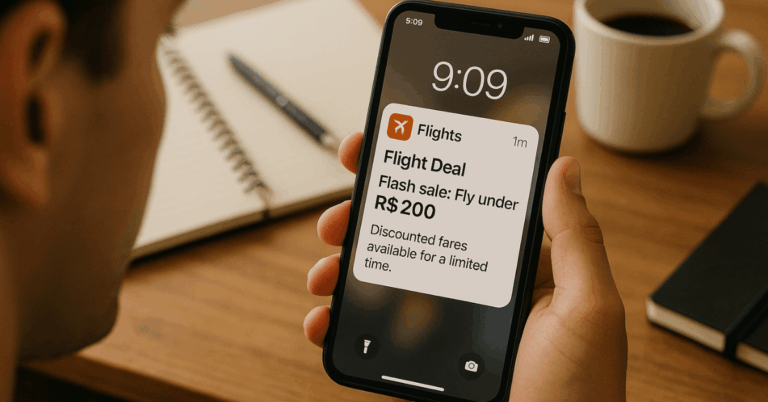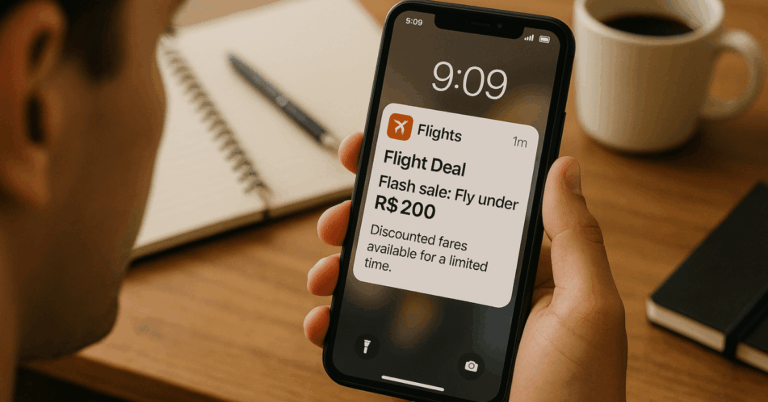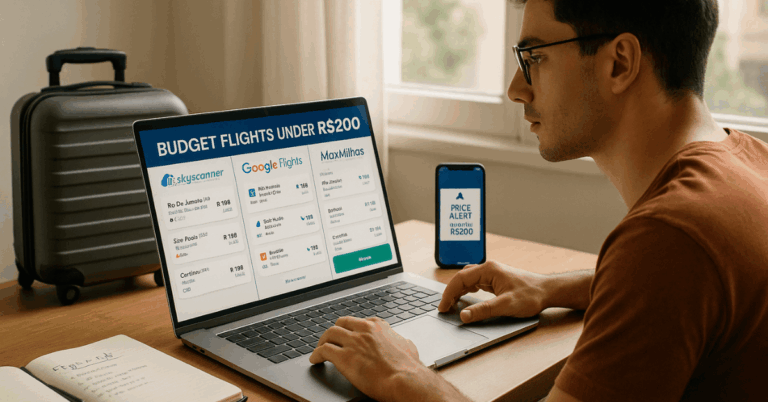Learning how Brazil’s car auction scene operates lets you secure vehicles well below dealership pricing while applying lessons that hold true worldwide.
Equip yourself with the right tactics, and you will bid confidently rather than gamble blindly.
How Car Auctions Operate in Brazil and Worldwide
Grasping the flow of an auction helps you predict costs and avoid rushed decisions. In Brazil, as elsewhere worldwide, vehicles are lined up, an auctioneer calls for offers, and the highest verified bid secures the keys. Events fall into three main formats:
- Live Yard Auctions – Outdoor or indoor venues where bidders raise paddles amid fast calls.
- Online Platforms – Virtual listings with photos, inspection videos, and timed bidding windows.
- Sealed-Bid Sales – Confidential offers submitted once, favoring strategic thinkers over speed.
Brazilian auction houses must publish a pre-sale catalogue (“edital”) at least five business days in advance, giving you ample time to research chassis numbers, damage reports, and any outstanding tax liens.
Regulations vary by state (DETRAN rules), yet the basic competitive structure mirrors auctions worldwide.
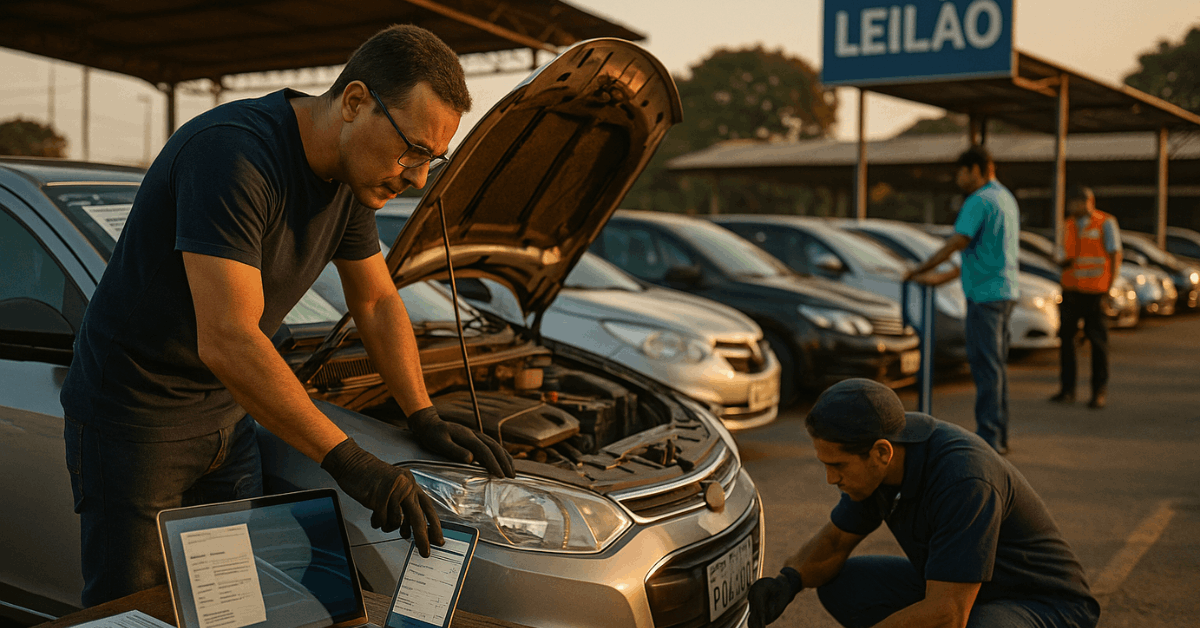
Public vs. Dealer Auctions: Entry Rules and Access Levels
Knowing which events you can legally enter prevents costly surprises. Brazilian auction operators separate inventory into two broad categories that also exist worldwide:
| Auction Type | Who May Bid | Typical Inventory | ID Needed |
| Public | Any adult who pays the registration fee | Fleet rotations, repossessions, insurance write-offs | CPF or passport |
| Dealer (Fechado) | Licensed dealerships only | New-car overstocks, late-model trade-ins, manufacturer buy-backs | Active dealership license |
Some mixed auctions run both lanes side by side, marking dealer-only units with colored windscreens.
Attempting to bid in a restricted lane without the necessary credentials results in immediate cancellation and forfeiture of deposits, so please confirm your access level before raising your paddle.
Licensing Requirements: When You Must Hold a Dealer Credential
Dealer licenses exist to protect consumers and simplify taxation. You need one only when:
- The entire event is classified as dealer-only.
- You plan to bid in a dealer lane within a mixed auction.
- You purchase more than six vehicles per calendar year in certain Brazilian states, which triggers legal dealership status.
Obtaining the license involves proving commercial premises, liability insurance, a clean criminal record, and active registration with DETRAN. The approval process can exceed sixty days, so casual buyers usually stick to public sales.
Essential Pre-Auction Preparation
Smart preparation controls risk and prevents buyer’s remorse. Follow these steps before stepping onto the yard or logging in online.
Key Actions Before Auction Day:
- Study the catalogue thoroughly. Note mileage, damage codes, and whether the sale is “no guarantee” (“sem garantia”) or “mechanical cert” (“garantia de motor e câmbio”).
- Set a hard spending ceiling. Calculate your maximum bid, including auction fees, transfer tax, and estimated repairs. Walk away the moment bidding exceeds that ceiling.
- Attend a preview session. Run the engine cold, inspect fluid leaks, verify VIN plates, and check tyre dates.
- Bring a qualified mechanic or appraiser. Professional advice costs little compared with an undetected gearbox fault.
- Arrange funds in advance. Brazilian houses typically require a ten percent deposit immediately, with the balance due within twenty-four hours by TED or boleto. International buyers moving funds worldwide should pre-arrange currency transfer to avoid delays.
Allocating time for these tasks positions you to compete with seasoned dealers rather than play catch-up.
Mastering Online Auctions Without Leaving Home
Digital platforms expand choice and compress timelines, yet their pace surprises newcomers. Prepare wisely for smooth remote bidding.
- Verify platform credibility. Choose auctioneers with physical yards, published CNPJ numbers, and independent reviews.
- Update your device. Slow software can cost you a winning click during last-second extensions.
- Inspect virtually. Request high-resolution photos, video walk-arounds, and third-party inspection reports when available.
- Register early. Platforms often freeze new accounts twenty-four hours before a sale to complete KYC checks.
- Practice as a spectator. Observing a few sessions lets you judge average closing prices and typical bid increments.
Applying these steps worldwide keeps your remote purchases secure and predictable.
Bidding Day Strategies That Protect Your Budget
Auction day feels electric, and disciplined strategy shields you from impulse spending.
- Arrive—or log in—early. Confirm the lot order and note any last-minute withdrawals.
- Position yourself wisely. Stand where you maintain eye contact with the ringman; online, keep the bid button visible.
- Open assertively on target lots. A firm early bid can deter bargain hunters.
- Pause when prices spiral. Let rivals duel; re-enter only if the hammer nears your pre-set ceiling.
- Never chase losses. Missing one car rarely justifies exceeding the budget on the next.
Sticking to methodical bidding preserves capital and boosts long-term gains.
Handling Paperwork and Payment After the Hammer Falls
Winning the lot marks only half the journey. Complete these steps quickly to avoid penalties:
- Pay the buyer’s premium (roughly five to ten percent) plus ICMS tax where applicable.
- Sign the purchase contract (“Termo de Arrematação”) with accurate personal or corporate details.
- Collect the “Nota de Venda” invoice, which you will need for registration.
- Arrange vehicle removal within the stated deadline—usually forty-eight hours—to dodge storage fees.
- Submit transfer documents to DETRAN. A new title typically arrives within thirty days, although timelines vary by state and worldwide.
Completing paperwork promptly keeps authorities satisfied and avoids unexpected fines.
Transporting Your Purchase: Local Pickup and Worldwide Shipping
Getting the vehicle home safely requires selecting the right transportation method based on its value and condition.
Domestic Options Within Brazil:
- Plate-on-drive: Cheapest for road-worthy cars once you obtain a temporary tag.
- Local flatbed tow: Best for non-runners or unregistered units within city limits.
- Enclosed trailer: Offers weather protection for high-value classics during interstate moves.
International Shipping Worldwide:
| Transport Mode | Ideal For | Typical Cost Range | Key Advantage |
| Roll-on/Roll-off (Ro-Ro) | Standard passenger cars | Moderate | Fast loading times |
| Shared Container | Multiple low-profile cars | Lower | Splits costs between buyers |
| Dedicated Container | Classics or exotics | Highest | Full enclosure and zero co-loading risk |
Trusted Carriers Familiar With Brazilian Exports:
- West Coast Shipping — door-to-door logistics worldwide.
- CFR Rinkens — container specialists for vintage and high-value models.
- Saco Shipping — established routes linking South America and Europe.
Document the vehicle’s condition with dated photographs, secure any loose parts, and confirm marine insurance coverage before the vessel departs.
Insurance Coverage You Should Secure Before Driving Off
Protecting your investment from day one prevents financial pain later.
- Mandatory Third-Party Liability (DPVAT in Brazil). Required for legal road use.
- Comprehensive Cover. Shields you from theft, fire, and weather damage and is recommended worldwide.
- Specialty Classic Insurance. Evaluated on agreed value, mileage caps, and secure garaging—ideal for collector cars.
- Cargo Damage Protection. Adds marine and loading coverage during international transport.
Quote multiple insurers, confirm coverage activates the moment ownership transfers, and keep digital policy proof on your phone for police roadblocks.
Costly Mistakes Many New Bidders Make
Avoiding common errors saves both money and stress.
- Skipping auction house research. Unvetted operators may hide fees or sell vehicles with embargoed paperwork.
- Ignoring hidden costs. Buyer’s premiums, storage, and registry taxes can add fifteen percent or more.
- Overbidding under pressure. Fast gavel rhythm tempts emotional spending; disciplined ceilings prevent regret.
- Neglecting vehicle history checks. A quick RENAVAM or CarCheck search exposes previous flood damage or odometer rollbacks.
Dodging these pitfalls positions you alongside seasoned pros rather than first-time victims.
Conclusion
Brazil’s auction market rewards buyers who combine solid research, disciplined bidding, and proper post-sale logistics. Apply the preparation strategies outlined here, respect your budget, and secure insurance before hitting the road.
Follow these principles and you will transform auto auctions, from São Paulo yards to online platforms worldwide, into reliable sources of quality vehicles at genuine discount prices. Happy bidding and safe driving.



